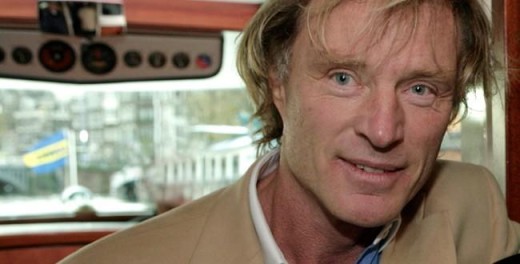
“I have done nothing! Look at what they did to my ancestors,” said A.S., a juvenile delinquent, serving a prison sentence for armed robbery and violence in Leeuwarden Juvenile Penitentiary. A.S. considers himself innocent and a victim of the Dutch colonial system that legally permitted slavery and slave trade in the 18th century.
In his eyes, and the eyes of many of his compatriots, he is a hero to his people, a freedom fighter, and only setting the record straight by taking revenge, that was long, long overdue. He is the victim, even today since the ” cocaine hungry Dutch users forced him to traffic drugs at the risk of his life.” And victims are entitled to victimize others as a form of revenge and self-defense.
Criminologists came to the conclusions that perceiving yourself as a victim, an attitude that gave birth to an entire culture of victimization, is the primary source, the main reason, of never-ending violent crime waves in the Caribbean.
The world experienced communism, socialism, fascism, the Holocaust, and World War I, World War II with over one hundred million casualties, but for Caribbeans, only slavery exists and nothing else. He and she, the Caribbean Afro-Caribbeans, are the victims of slavery, and over and over, descendants call for lofty financial compensation, although abolition with extensive indemnifications was handled eight generations ago.
Caribbeans in Europe seem to have just one attribute; they are the victim, the victims of perceived discrimination, the victims of unjust laws and more than anything else, the victim of slavery. Once in Europe, many play that precious race card. Like an old mantra, immigrants claim to be the victim of racial discrimination and in the Dutch Antilles, Sinterklaas, an age-old annual traditional children’s December festival is demonized, as if it were an intentional, well-organized form of public racial discrimination.
Locally on the islands, politicians reject the notion. They may occasionally talk about ” reverse discrimination” but in general, they deny its existence and eagerly point their finger at social-economic shortcomings of the society, which they claim as the primary source of crime and the result of slavery that ended in 1864. Others come with a slightly new angle and mention malnutrition during pregnancy, the deteriorating family structure, or inflation of ethics, but those, they claim, were also caused by slavery.
No politician offers a useful working hypothesis that provides a strong enough handle to make any difference in solving the misconception and the ” criminal revenge.”. Caribbeans love to be victims, and nothing, absolutely nothing, will get their mind off that notion. With European colonists mostly gone, they turned against ethnic minority groups, like Chinese and Hindus and even competed clans.
What is more, neither professional crime fighters nor moral leaders seem to be willing to formulate a common denominator, while in practice the masses are clinging onto the victimization syndrome by slavery.
Crime is crime, a nuisance, and its violence, a horror.; who cares what causes it. It is a dangerous nuisance. Ministers of Justice talk tough for their constituency, but are they truly interested in solving the problem?
With politicians just as eager to be victims, there is little hope that the dominant role of victimizations will be gone soon.
By Jacob Gelt Dekker
Opinion columnist for Curaçao Chronicle


Slachtoffergedrag wordt beloont door Nederland.
De zeldzame keren dat dat niet gebeurt, werkt het ook gelijk een stuk beter.
Kan iedereen zich nog herinneren dat Rutte enkele jaren geleden hier op bezoek geirriteerd antwoordde dat de Antilliaanse ‘landen’ alleen maar even hoefden te bellen als ze onafhankelijk wilden worden? Dit als antwoord op het bekende gezeur.
Daarna heb ik geen enkele Antilliaanse politicus meer over onafhankelijkheid gehoord. Ja behalve de mafiosi natuurlijk.
Over dit onderwerp, uitgediept en al, heb ik in 2014 een boek geschreven onder de titel: ‘Curacao en de eeuwige limbo met Nederland’. U kunt het nog bestellen bij de uitgever. Even googelen.